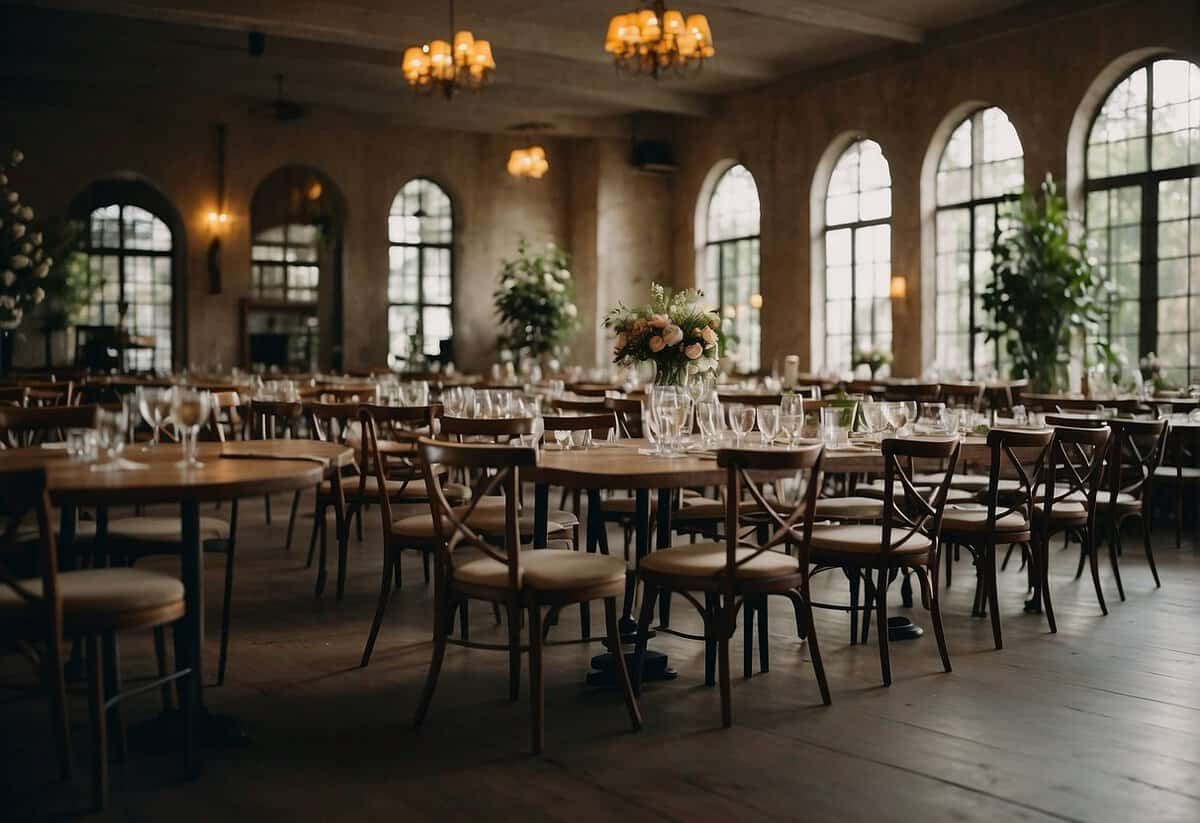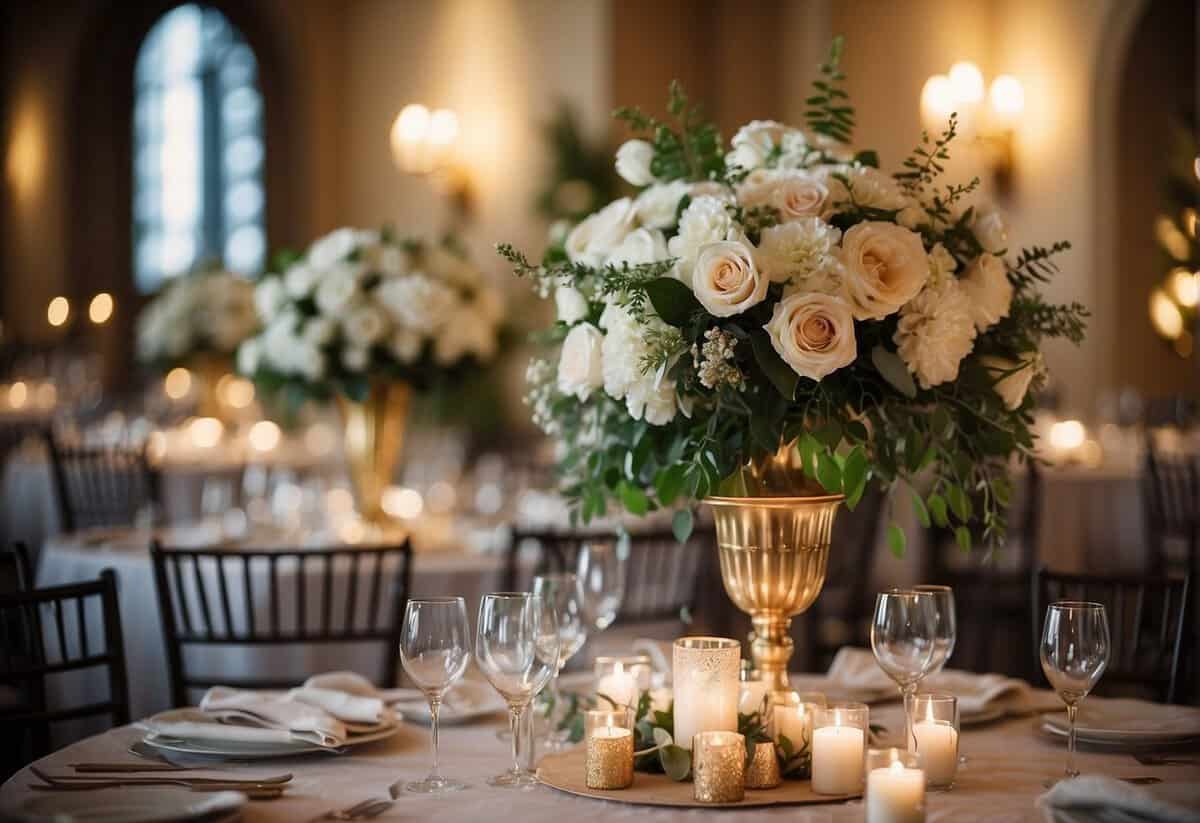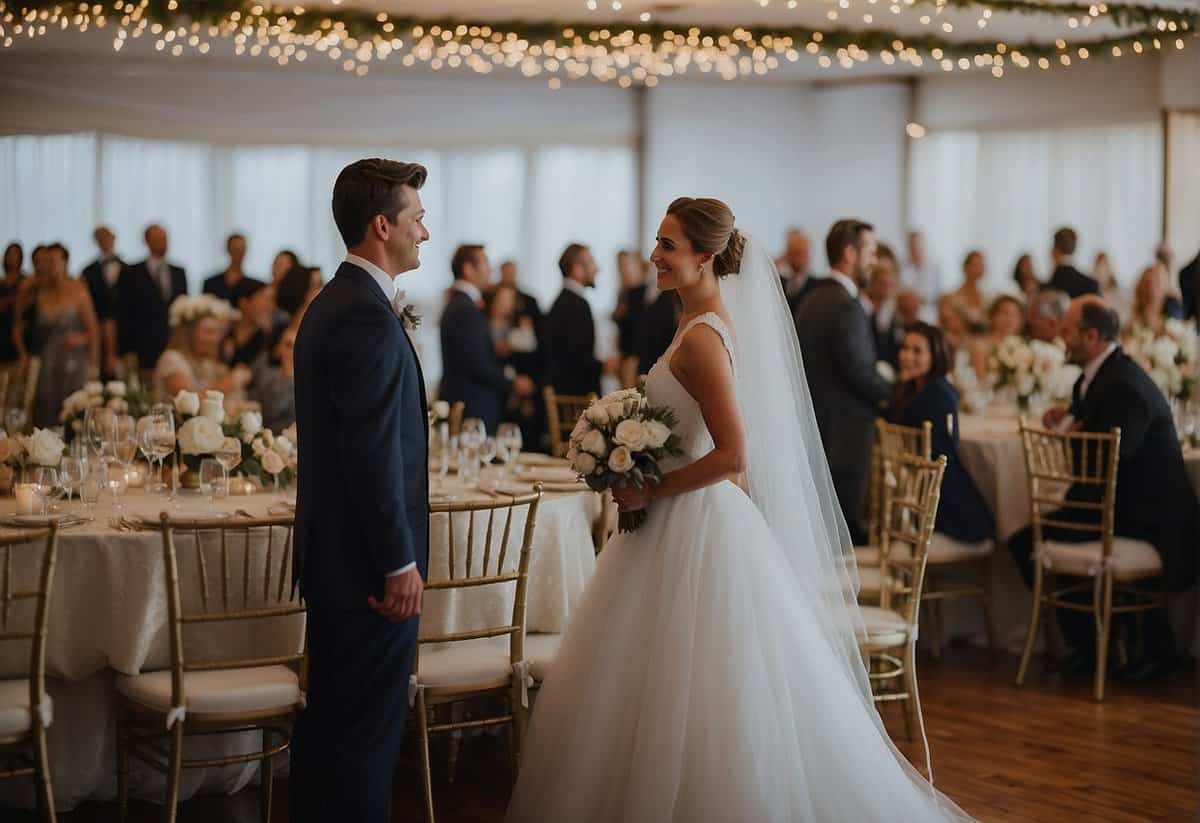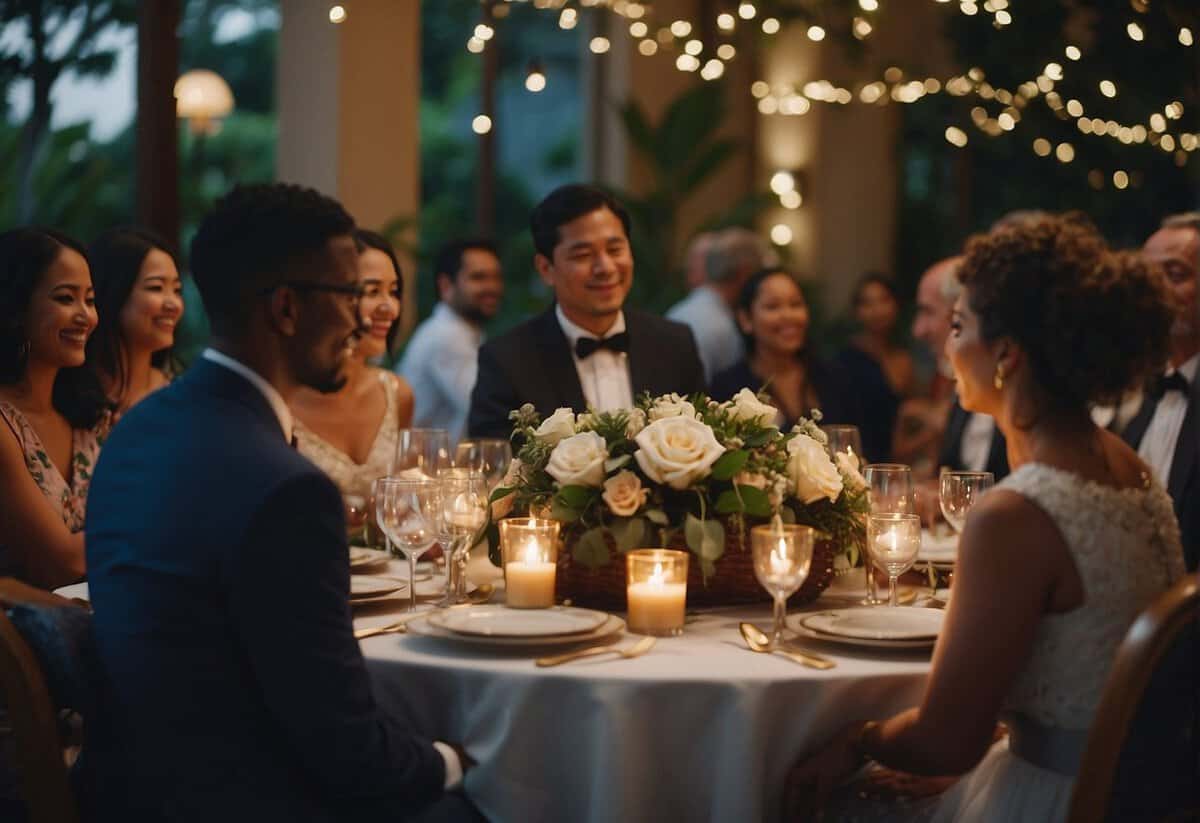Is it Rude to Not Have a Wedding Reception? Exploring Etiquette in Modern Celebrations
Deciding whether to host a wedding reception can carry different meanings for different couples, and concerns about etiquette often arise. Wedding receptions traditionally serve as a celebration following the wedding ceremony, giving the newlyweds an opportunity to interact with guests and for everyone to celebrate the occasion together. Although the reception is a common social expectation, modern couples sometimes question this norm, considering the personal and financial implications of such an event.

It’s worth noting that the decision to forgo a wedding reception, while unconventional, is not inherently rude. Transparency and communication with your guests are key to managing etiquette and expectations. Your wedding day is a personal affair, and how you choose to celebrate should reflect your wishes and circumstances. Being honest with your guests about your reasons can help ensure they feel respected and included, even if there is no formal reception. Additionally, there might be various cultural factors or personal reasons influencing your decision, and acknowledging these in your wedding planning can help you determine the best approach for your special day.
Key Takeaways
- Couples may opt out of a wedding reception for various personal reasons.
- Communicating with guests about the wedding format respects etiquette.
- Your wedding day should reflect your individual preferences and circumstances.
Understanding Wedding Receptions

Wedding receptions mark the celebration following the formal event of a wedding ceremony. They’re a time for guests to mingle, enjoy a meal, and celebrate the newly married couple.
The Role of the Reception
A wedding reception is essentially a social gathering that celebrates the union of the couple. Think of it as a big party where you can share in the couple’s joy. It’s customary to indulge in a meal, have a few drinks, and enjoy dancing. These events often include traditional elements like cutting the cake, capturing special photos, and heartfelt toasts from close friends and family. As a guest, it’s your time to interact with the wedding party and other attendees, share stories, and create lasting memories.
Reception vs. Ceremony
While the wedding ceremony is a formal event where the couple exchanges vows, the reception is less structured and more fluid. A ceremony is about the commitment between the two individuals getting married, often held in a place of religious or personal significance. In contrast, a reception is all about guest interaction and enjoyment. It typically involves a seated meal or buffet, music from either a DJ or a band, and other entertainment. Some couples choose to blend their ceremony and reception into one continuous event, while others keep them distinct. Aspects of wedding etiquette guide whether you receive invitations for both events or just one, which can vary depending on the couple’s preference or cultural traditions.
Etiquette and Expectations

When planning your wedding, you might wonder if it’s necessary to have a reception. Understand that etiquette evolves and while certain traditions have been standard, there’s a growing acceptance of varying approaches to celebrating nuptials.
Etiquette Rules
Wedding etiquette serves as a guide to hosting and participating in weddings. Traditional etiquette rules mention that it’s important to honor RSVPs and gift-giving customs. For example, if your wedding invitation specifies a certain number of guests, attendees are expected to respect the indicated guest list size. Similarly, when it comes to cash gifts, it’s polite to handle them discreetly.
Traditional Expectations
Historically, a traditional wedding includes both a ceremony and reception. This reflects the expectation of celebrating the newly married couple’s union with family and friends. The reception, often held at designated wedding venues, allows guests to partake in the couple’s joy with food, dance, and festivities after the formal ceremony.
Modern Views on Receptions
Today, modern couples often embrace alternative wedding styles. Some opt for an intimate ceremony without a larger reception, while others may even choose to elope. Attitudes are shifting and the emphasis is increasingly on what feels right for the couple’s personal experience rather than conforming to a set of strict customs.
Planning Your Wedding

When embarking on your wedding planning journey, it’s crucial to consider the size and style of your big day, from selecting who to invite to figuring out the end-of-day celebrations. Focus on who is essential for your ceremony and how you’ll communicate your plans to ensure a smooth experience for your guests.
Deciding on a Reception
Deciding whether to have a wedding reception can be a big decision. On one hand, having a large reception provides an opportunity to celebrate with all of your friends and extended family. On the other hand, opting for an intimate ceremony with only your immediate family and closest friends can create a more personal and private affair.
- Pros of a Big Reception:
- Celebrate with a wider circle of people
- Traditional party atmosphere
- Cons of a Big Reception:
- Higher costs
- More complex logistics
Conversely, here are reasons to consider a smaller reception or none at all:
- Intimate Gathering:
- Focus on quality time with each guest
- Generally lower costs and simpler planning
- No Reception:
- Potential savings on wedding venues
- Can allocate budget to other areas like the honeymoon
Assess your priorities and discuss with your partner whether the inclusion of a reception aligns with your vision and budget for the day.
Ceremony-Only Logistics
If you’re leaning towards a ceremony-only event, it’s vital to manage logistics effectively:
Venue Selection: Choose a wedding venue that caters to ceremonies specifically, possibly at a reduced cost compared to full-service venues.
Guest List: Be clear on your guest list; ensure it reflects those important to witness the actual marriage.
Communication: Use your wedding invitation to clearly explain the structure of your wedding. Indicate whether guests should expect a reception afterwards or if the event ends post-ceremony.
- Example of invitation wording for a ceremony-only event:
- “We invite you to witness our vows during a private ceremony. Please join us at [Location] on [Date].”
Remember, if you do forgo a reception, you might consider other ways to express your appreciation to guests, like a small token or personalised note.
Cultural and Personal Considerations

When you’re planning your wedding, it’s essential to consider both cultural norms and your individual preferences. These factors can influence whether or not you decide to host a reception.
Religious Traditions
Religious traditions often play a significant role in how your wedding day unfolds. For instance, in some religious settings, the wedding ceremony is a momentous and solemn event with a private ceremony that focuses on the exchange of vows in the presence of a select guest list. The love and commitment shared between partners are celebrated with sacred rites, and the reception might be considered a secondary event. For example, a Quaker wedding often involves a silent ceremony that is deeply introspective and may not lead into a lavish reception.
Personal Preferences
Your personal preferences are equally important. If you value intimacy and smaller gatherings, you might opt for a tiny or even no reception. This could be due to budget concerns or a desire for a simpler celebration where the emphasis is on traditions and love rather than a grand party. Perhaps you and your partner wish to honor your commitment in a modest fashion, preferring a meaningful wedding ceremony without the fanfare of a reception. The choice to forgo a traditional reception can also reflect a modern shift in wedding traditions where your happiness and comfort take precedence.
Frequently Asked Questions

If you’re considering a wedding without a traditional reception, you likely have a few questions. This section aims to provide you with clear answers and guidance on alternatives, etiquette, and wording for invitations to help you plan your ceremony-focused wedding.
What are some polite alternatives to a traditional wedding reception?
You might opt for a small gathering after the ceremony with close family and friends, or perhaps a larger celebration at a later date. Intimate dinner parties or informal gatherings at home can also be heartwarming and cost-effective alternatives.
How should you word your invitations if you’re not having a wedding reception?
When not hosting a reception, your invitations should specify that guests are being invited to the ceremony only. Clarity is essential, so consider language like, “Please join us for our wedding ceremony,” followed by the relevant details without mentioning a reception.
Are there etiquette guidelines for having a ceremony-only wedding?
Yes, wedding etiquette suggests properly managing guests’ expectations and being upfront about the day’s events. Communication is key — ensure guests know you are having a ceremony-only event to avoid any confusion or surprise.
What are some considerations for guests invited to the ceremony but not the reception?
If you choose a ceremony-only wedding, it’s vital to treat guests with respect and communicate clearly about the structure of the day. Guests should be informed of their invite scope upfront, and politeness dictates that guests should honor the couple’s wishes without complaint.
Can a wedding be considered complete without a reception?
Certainly, a wedding is a legal and emotional commitment between two individuals and can be complete without a reception. The decision to have a reception or not is a personal one and doesn’t diminish the significance of the marriage.
How do couples typically celebrate if they choose to skip the wedding reception?
Couples might choose a simple yet special activity post-ceremony, like a private photoshoot, a quiet meal, or a casual gathering with their witnesses. Some may even decide to save funds for future plans such as travel, a home, or other life investments.


